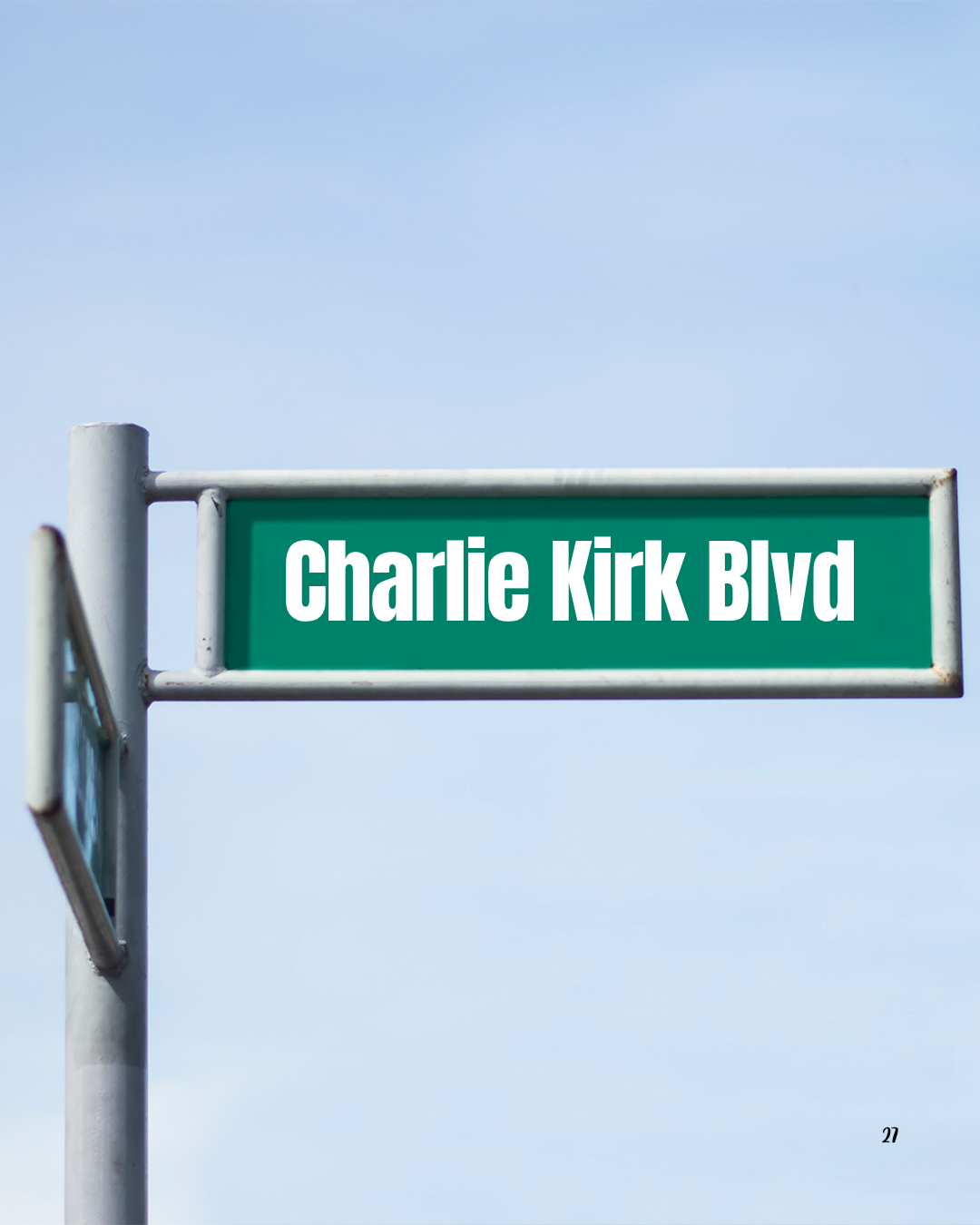Asphalt Politics: Forcing Charlie Kirk on Florida Campuses
Florida legislator Kevin Steele has proposed a bill that would require every public college and university in the state to rename a road after conservative activist Charlie Kirk and withhold state funding if they refuse.
I think that’s called extortion. But this is Florida, and that’s how the ruling class rolls … sometimes over everyone else.
At first glance, this looks like political theater from a second-term lawmaker eager to prove his conservative chops and score some media hits and attention. But if this bill passes, it will be yet another blow to any pretense that university trustees are anything more than potted plants.
In Florida, public university trustees are appointed by the governor. And if any go off script and ask inconvenient questions, they get reined in by the Board of Governors, which also has a majority appointed by the governor. The BOG, as it’s called, has final say on everything from hiring presidents to setting tuition and strategic priorities. Here a board, there a board, everywhere a board, but they all report up to one man in Tallahassee.
Still, these handpicked boards do include some accomplished civic and business leaders who devote hundreds of volunteer hours to institutions serving over 400,000 students. I have respect for those who continue to protect campuses and preserve what’s left of institutional autonomy under these conditions.
And now, one legislator wants to dictate road names. Demanding these trustees follow legislative directives about memorials or risk budget cuts is both insulting and unnecessary.
Opinions on Charlie Kirk’s legacy vary. Some see him as a bold advocate for free speech, debate, and civic engagement. Others view him as an amplifier of conspiracy theories and divisive rhetoric targeting women, minorities, immigrants, the homeless, and university faculty. There may be at least some truth in both perspectives.
But what’s indisputable is that Kirk’s Professor Watchlist caused real harm. This online registry targeted faculty accused of “liberal bias” and led to harassment, including death and rape threats, from Turning Point’s audience. Many professors feared for their safety. Some even moved out of the country. Mischaracterizations or oversimplifications of faculty viewpoints had a chilling effect on academic freedom and classroom discourse.
Naming a road after him on every public campus has nothing to do with academic achievement and everything to do with political symbolism. Withholding state funds to force partisan memorials isn’t governance; it’s coercion.
If Steele wants roads named for controversial activists, he should involve the campus community and take their views into account, especially at schools serving large populations of first-generation or minority students. Maybe he could start at Florida A&M, the nation’s top public HBCU.
Florida’s colleges and universities are engines of learning, research, and civic life. They deserve leaders who defend access, excellence, and inquiry, not lawmakers who weaponize funding to score political points. And let’s be honest: while Kirk criticized college faculty, curricular decisions, and “liberal bias,” he never attended college. He didn’t earn a degree or experience firsthand the institutions he regularly attacked. Naming a street after him is like honoring a football player who never played the game.
In our democracy, it’s fine for people to choose paths other than college. Many do. But universities are America’s intellectual and economic capital. Their impact touches everyone, degree-holder or not.
We are living in a dangerous time for our universities, every bit as dangerous as the senseless violence that ended Charlie Kirk’s life. Florida’s campuses should remain places where thought is free, debate is honest, and roads are not turned into asphalt memorials for a single viewpoint.
I hope we see more reporting on this and the ongoing politicization of Florida’s higher education system.

